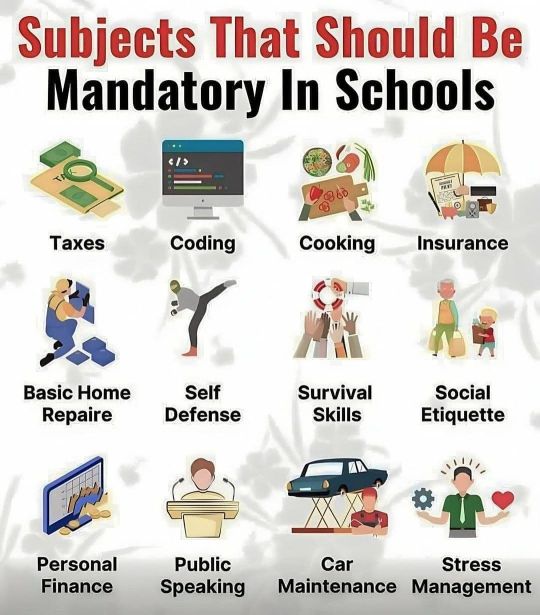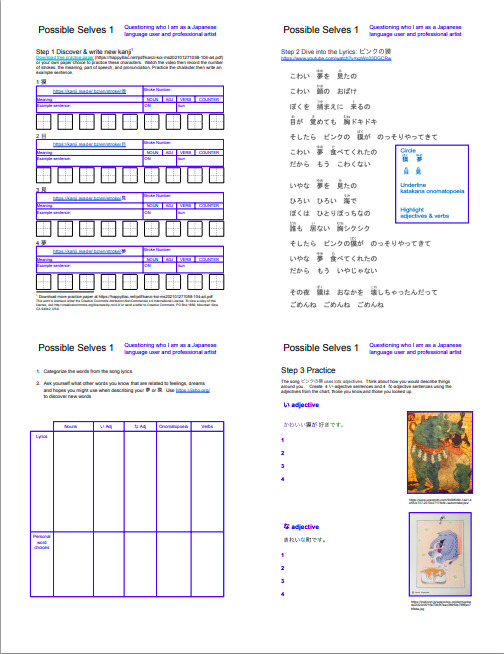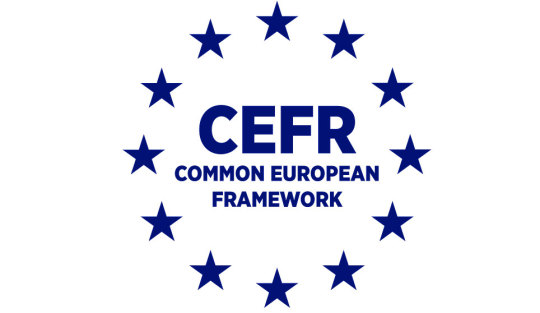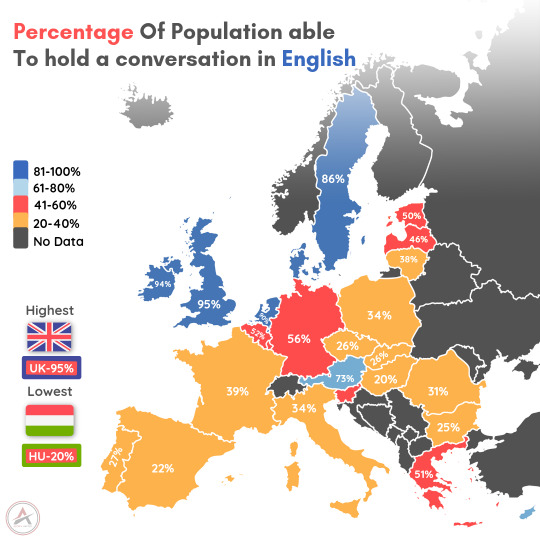#proficiency
Text
1K notes
·
View notes
Photo

English language proficiency index by states in Europe 2021
by u/PepperBlues
127 notes
·
View notes
Text
Proficiency
Korean in their mouths
sounds like a bowl
of cooked rice, a thousand puffs
soft constellations
ball gown, hopscotch, lightswitch
A moon between their teeth
A rowboat, no wind
But korean in my mouth sounds like
books falling off a cheap shelf
like a word standing on its toes, too short
like a couch that won't fit around the corner
Sounds like kissing someone before
it's too late and I bang
my lips into their lips
I cannot order soup
or comment on the rain or ask my birthmother if she's happy without
twenty bats flapping out of my face
When I was first reunited with my birthmother,
she opened the door and she looked at me
then she looked at my friend
then she looked at me
then she looked at my friend
unsure which daughter was her daughter.
This is the tongue I was born with
— Na Mee, featured in Diode Poetry Volume 16 #1 (source)
8 notes
·
View notes
Text

English needs no introduction at this point. This language is understandable to a wide range of individuals from different nations, whether or not it is innate. It is undeniable that those who are exposed to this language in their early years will continue to speak it at their highest fluency levels as they become older and will also likely acquire higher competence levels because of their early exposure. But the question is, what distinguishes individuals who acquired fluency in English from those who did not? Thinking back on my English-speaking cousins has inspired me to research the variations in English language skills among people, hence my decision to delve into the underlying aspects of this topic.
As soon as I started noticing two of my cousins, I developed an interest in learning more about the variations in English proficiency. Although they come from different backgrounds—my parents' sides—both of them can speak this language fluently, to the point where they can converse with native speakers. I could even go as far as to say that they are comparatively on par with native speakers. One of them, Sean Colbie, 14, has been speaking English since nursery, and his continuous exposure to different English cartoons during his early years helped him significantly develop. Her mother found out that his son has a strong fondness for watching Cartoon Network at the age of six. This became apparent when he was in first grade, and from then on he became even more committed to watching foreign shows. “Mga around Grade 1, lagi lagi na siyang nanunuod ng mga cartoons. Mostly in English. Sinusubaybayan niya almost every day yung channel na Cartoon Network, dahil ‘dun na-adapt niya yung mga dialogues na naririnig niya sa mga shows na napapanuod niya sa T.V. (Around Grade 1, he always watched cartoons. Mostly in English. He follows the Cartoon Network channel almost every day, and that's where he adapted the dialogues he hears in the shows he watches on T.V.).”
Moreover, Sean’s fondness for speaking in English was further strengthened and reinforced the moment he was introduced to his phone, which he often uses to access YouTube and Facebook, among other media platforms. In that regard, watching videos that are hosted by English native speakers has become his pleasure, which has helped him develop toward fluency in the language. There is no denying that media consumption can significantly contribute to one’s communicative progress. Research on how media intake affects English competence is still under progress, yet some studies point to certain advantages. For example, a study discovered that using social media in English can improve learners' proficiency in the language since it offers interactive content, visual components, and communication and learning opportunities. Another study indicated that social media usage positively affects learners' understanding of English as much as it enhances their comprehension of the language and may help them become more proficient in vocabulary, listening, and general language usage. While it may seem like a pivotal contributor to one’s proficiency in English, I don’t intend to digress.
After all, Sean’s ability to speak English has greatly benefited from the impact of YouTubers like PewDiePie, Markiplier, and Matthew Patrick of The Game Theorists. These media personalities encouraged him to speak English more frequently until he was able to do so fluently. “Sa dami ng napapanuod niya sa YouTube and Facebook, naging natural na lang sa kanya ‘yung pagsasalita in English, almost to the point na hindi na siya nagta-Tagalog. It’s never been an issue for us though. Proud naman kami na natutunan niya ‘yung English mostly by himself (With the amount of time he has been watching on YouTube and Facebook, speaking in English has become natural to him, almost to the point that he no longer speaks Tagalog. It's never been an issue for us though. We are proud that he learned English mostly by himself).”
The same can be observed with my 12-year-old cousin, Eumi, who's on my father’s side. But instead of acquiring the language naturally, she was intentionally taught by her mother on a regular basis, which is how she acquired fluency in English at such a young age. “Actually akala ko namana niya yung ganoong skill niya sa papa niya. It was until I remembered na ako pala nagturo sa kanya na mag Ingles. Even before bago siya maging talkative, talagang tinarget ko si Eumi na matuto mag-English. English mode yan kaming dalawa every time na magba-bonding kami. Kahit si Vince, nire-remind ko talaga na mag-English ‘pag kakausapin si Eumi. Mandatory datingan, ganun. Tipong makaka-encounter lang kami ng words sa bahay, actually anywhere, mapa-phone, T.V., posters, sa malls, pinapabigkas ko ‘yan kay Eumi. As much as possible, ine-encourage ko siya na mag-read. Read, read, read, read, read, read, tina-try ko talagang ma-push si Eumi sa pagbabasa since appropriate naman din talaga yung pagbabasa sa children natin. Anybody her age should be encouraged to read textbooks, stories, kahit yung simple alphabetical posters, lahat ‘yan very advisable sa kapwa parents natin, especially for the sake of their kids’ growth and development (Actually I thought she inherited that skill from her father. It was until I remembered that I taught her to speak English. Even before she became talkative, I really targeted Eumi to learn English. It's English mode for both of us every time we bond. Even Vince, I really reminded him to speak English when talking to Eumi. Every time we encounter English words at home, actually anywhere, phones, T.V., posters, in malls, I make Eumi pronounce them. As much as possible, I encouraged her to read. Read, read, read, read, read, read, I was really trying to push Eumi to read since reading is really appropriate for our children. Anyone her age should be encouraged to read textbooks, stories, even simple alphabetical posters, all of which is very advisable to our fellow parents, especially for the sake of their kids' growth and development).”
Now that I clarified where this assessment ultimately stems from, it is obvious that Eumi and Sean are the sole reason I became curious about the difference between attaining fluency in English during the early years and attaining it during the later stages in life. There is very little difference between their fluency levels when compared to one another, and their natural usage of this language only continues to evolve as they get older and mature. With that being said, my curiosity then prompted me to harp on the belief that their natural acquisition and gradual improvement of speaking in English have something to do with the critical period in a child's learning development, especially in light of the fact that they gradually gained fluency in this language from infancy and childhood to adolescence.
Becoming advanced with learning a language can have a significant impact on how well you grasp its usage eventually. This is where the critical period in a child's learning development takes effect since it is a biologically determined stage where the child is supposed to be optimally ready to acquire certain skills. Based on its definition, this period is associated with brain plasticity and is characterized by the highest potential for learning and development. The critical period is generally considered to occur in the early years of a child's life, from birth to around the age of five. It is crucial to learn language, vision, hearing, and other skills during this period because it is when the brain is particularly responsive to learning and the development of neural connections. This relates to how they developed their English language skills in a manner similar to that of native speakers, which is particularly clear given that they were exposed to the language from an early age. One of them, as I mentioned earlier, picked up English organically by watching different English-language cartoons, let alone the fact that he was instructed to communicate in English with everyone around him, including his family. To a certain degree, his family has some influence in how he developed his natural fluency in the language, and that is largely due to the fact that they decided to speak to him in English for as long as they could, primarily in an effort to help him become a native English speaker from birth.
Despite the fact that Eumi learnt the fundamentals of the language from her parents, she has also benefited from viewing English cartoons and speaking to everyone in English. The Language Acquisition Device (LAD) developed by Noam Chomsky is a factor that sets Eumi and Sean apart from the rest of our cousins. It is a theoretical concept that suggests the existence of a biological structure in the human brain that enables children to acquire language. Chomsky proposed that children are born with an innate ability to understand and generate language, and the LAD serves as a universal grammar processor, which allows them to grasp the complexities of language through exposure and interaction. Based on the manner in which Sean developed his preference for speaking English in his early years, youngsters may be able to progress in their English proficiency in a manner that will allow them to do so in the future. However, with Eumi, that isn't mostly the case. She learnt the language more intentionally and didn't pick it up naturally. Even if her education can be whittled down to homeschooling and tutorials, her parents have given her enough guidance that she has become incredibly proficient in English when speaking to others. She began with the fundamentals, as did Sean, who also started with basic words and sentence structures before expanding his vocabulary and growing more accustomed to speaking the language at such a young age.
All things considered, we can argue that learning to speak English in the early phases of human development, from birth to childhood, can aid non-native speakers like me in adapting and achieving higher levels of proficiency and fluency than those who are only beginning to learn it during their adolescent years. It is true that early development is more critical than later development, whether or not it takes work to understand the fundamentals of English communication during the adolescent years, and this is especially evident when you are learning the English language for communicative purposes.
REFERENCES & SOURCES:
Ohwovoriole, T. (2023, July 25). Critical period in brain development: definition, importance. Verywell Mind. https://www.verywellmind.com/critical-period-in-brain-development-definition-importance-7556041
Levels of learning a language – Mango languages. (2023, March 16). https://mangolanguages.com/resources-articles/levels-of-learning-a-language/
Sriram, R. (2020, June 24). Why ages 2-7 matter so much for brain development. Edutopia. https://www.edutopia.org/article/why-ages-2-7-matter-so-much-brain-development/
Cisneros-Franco, J. M., Voss, P., Thomas, M. E., & De Villers-Sidani, É. (2020). Critical periods of brain development. In Handbook of Clinical Neurology (pp. 75–88). https://doi.org/10.1016/b978-0-444-64150-2.00009-5
Jones, M. (2021, April 13). English Proficiency levels: A guide to determining your level. SpeakUp Resources. https://magoosh.com/english-speaking/english-proficiency-levels-a-guide-to-determining-your-level/
Vipond, T. (2023, October 25). Language proficiency levels. Corporate Finance Institute. https://corporatefinanceinstitute.com/resources/career/language-proficiency-levels/
Dore, R. A., Logan, J., Lin, T., Purtell, K. M., & Justice, L. M. (2020). Associations between children’s media use and language and literacy skills. Frontiers in Psychology, 11. https://doi.org/10.3389/fpsyg.2020.01734
Arulchelvan, P. (2019). Social media usage among English language learners in Primary School. https://www.redalyc.org/journal/6437/643770323033/html/
Muftah, M. (2022). Impact of social media on learning English language during the COVID-19 pandemic. PSU Research Review. https://doi.org/10.1108/prr-10-2021-0060
#english#proficiency#languageacquisition#languagelearning#earlydevelopment#latedevelopment#nativespeaker#nonnativespeaker#chomsky#fluency
2 notes
·
View notes
Text

teachersthings
3 notes
·
View notes
Text
Nihongo Dreams Worksheets
I love exploring Japanese through a multi-literacy experiences. Check out this activity for ALL level of Japanese language learners. Let me know what you think.
I love exploring Japanese through a multi-literacy experiences. Regardless of your level of Japanese, you will be able to gain something in lessons based on the multi-literacy approach. This worksheet ties in with the Nihongo Dreams post from a few days ago. If you haven’t read about the BAKU yet, please start there.
Step 1: Watch this video from my post Nihongo Dreams
Step 2: Download & print…

View On WordPress
#authenticjapanese#authenticresource#baku#beginningjapanese#blogaboutjapanese#intermediatejapanese#Japaenseblogs#japaneseblog#Japaneselanguage#japanesemusic#Japanesewords#Jisho#kanji#Kanjipractice#LanguagePortfolio#MSU#nihongo#NWU#possibleselves#proficiency#realjapanese#reflectivelearning#ReversoContext#Selfstudy#shibainu#日本語
16 notes
·
View notes
Text
Next step in creating a DnD character: skills. Because this character is a warlock, they get two skill proficiencies out of the ones in this poll, so the top two answers will be what we keep for them.
See you all in a week with the results!
#dnd#character creation#dnd character#centaur#firbolg#warlock#poll#archfey#tumblr magic#charismatic dumb fuck#skills#proficiency
2 notes
·
View notes
Photo

“You’ll never use Proficiency, Sea Vehicles.” they said.
“It’s a waste of a proficiency” they said.
Where are they now?! THEY’RE DEAD IN THEIR PUNY TANKS.
2 notes
·
View notes
Text
«Πόσο καιρό χρειάζεται για να δώσω το Lower/Proficiency;»

Ο πραγματικός χρόνος απόκτησης πτυχίων στις ξένες γλώσσες
«Πρώτο πτυχίο σε έναν χρόνο».
«Επάρκεια σε δύο».
«Προετοιμασία για σπουδές στο εξωτερικό με έξι μήνες υπερεντατικών μαθημάτων».
Με παρόμοιες υποσχέσεις από εκπαιδευτικούς ομίλους κατακλύζονται τα inbox μας αλλά και τα καπό των αυτοκινήτων μας κάθε Μάιο και Σεπτέμβριο. Ανταποκρίνονται, όμως, οι παραπάνω εξαγγελίες στην πραγματικότητα; Πόσοι μαθητές κατορθώνουν να περάσουν πράγματι τις εξετάσεις για τα πτυχία κάθε γλώσσας; Πόσοι εγκαταλείπουν κατά την προσπάθεια; Και πόσοι πραγματικά κατακτούν μια ξένη γλώσσα;
Τα παραπάνω ερωτήματα βασανίζουν πολλούς γονείς και μαθητές, γι’ αυτό εδώ θα προσπαθήσουμε, μοιράζοντας την επαγγελματική μας άποψη ως native speaking εκπαιδευτικοί του SONS Language School, να κάνουμε μια ψύχραιμη και αντικειμενική καταγραφή των χρόνων που απαιτεί κάθε πτυχίο σε Αγγλικά, Γαλλικά, Γερμανικά, Ισπανικά και Ιταλικά, με γνώμονα τις ώρες διδασκαλίας και την ηλικία των διδασκομένων σε σχέση, πάντοτε, με το CEFR (Common European Framework of Reference for Languages) – Κοινό Ευρωπαϊκό Πλαίσιο Αναφοράς για τις Γλώσσες.
Άλλωστε, το CEFR για τις γλώσσες αποτελεί μια κατευθυντήρια γραμμή που χρησιμοποιείται για να περιγράψει τα επιτεύγματα μαθητών ξένων γλωσσών (ξεκινώντας από το Α1 για τους αρχάριους μέχρι την πλήρη επάρκεια του C2) σε όλη την Ευρώπη. Κύριος στόχος του είναι να παρέχει έναν κοινό οδηγό μάθησης, διδασκαλίας και αξιολόγησης, η οποία εφαρμόζεται σε όλες τις γλώσσες στην Ευρώπη.

Η αγγλική γλώσσα είναι η πρώτη ξένη γλώσσα, την οποία ξεκινούν κατά κανόνα τα παιδιά, όταν φοιτούν στις πρώτες τρεις τάξεις του Δημοτικού. Ως εκ τούτου και καθώς δεν κατέχουν καν επαρκώς την ελληνική γλώσσα, τα δύο πρώτα χρόνια θεωρούνται προκαταρκτικά, πρόκειται για τα τμήματα Junior Α & Junior B (Pre A1). Μετά το πέρας αυτού του χρονικού διαστήματος, αρχίζει η «αντίστροφη μέτρηση» μέχρι τα διπλώματα Αγγλικών, με πρώτο το πτυχίο Lower (B2), που συνήθως διαρκεί από έξι έως επτά χρόνια, με μάθημα δύο φορές την εβδομάδα επί δύο ώρες. Συχνά, η εξέλιξη ζητείται από τους γονείς να γίνει γρηγορότερη έτσι ώστε οι μαθητές, ακολουθώντας υπερεντατικό τμήμα στη διάρκεια του καλοκαιριού (Sandwich Course – E Class & Lower), να επιδιώξουν να πάρουν στα χέρια τους το Lower λίγο νωρίτερα (Α’ με Β’ Γυμνασίου).
Μόλις ένας μαθητής πάρει το πτυχίο Lower του Michigan ή του Cambridge (αντιστοιχεί στο Β2 με βάση το CEFR) η μετάβαση στο Proficiency (αντιστοιχεί στο C2) γίνεται με μάθημα 3 φορές την εβδομάδα επί δυο ώρες για δύο χρόνια. Φυσικά, εξακολουθεί να υπάρχει το ενδιάμεσης δυσκολίας πτυχίο Advanced (C1 με βάση το CEFR), αλλά λίγοι μαθητές αποφασίζουν να δώσουν εξετάσεις για αυτό. Αν, λοιπόν, δεν υπάρξει κάποια ανατροπή στον προγραμματισμό, στην Α’ Λυκείου ένας ανήλικος μπορεί να έχει ολοκληρώσει τις σπουδές των Αγγλικών. Συχνά, σε αυτή τη περίπτωση όπως και στο Lower, η εξέλιξη απαιτείται από γονείς και μαθητές να γίνει γρηγορότερη έτσι ώστε οι μαθητές, ακολουθώντας υπερεντατικό τμήμα στη διάρκεια του καλοκαιριού, να επιδιώξουν να πάρουν στα χέρια τους το Proficiency λίγο νωρίτερα.
Ωστόσο, αντιθέτως με την πεποίθηση των γωνέων, πιο συχνά απ' ότι όχι, εκδειλώνεται μια πληθώρα προβλημάτων που αντιμετωπίζουν οι μαθητευόμενοι οι οποίοι υιοθετούν την σκεπτική του “γρήγορου” αποτελέσματος - μία τακτική που τους καταδικάζει σε μία σπείρα εμποδίων και συχνά δυστυχώς οδηγεί στην αποτυχία τους.
Κάθε χρόνο 100.000 περίπου εξεταζόμενοι αποτυγχάνουν στις εξετάσεις Lower, Advanced & Proficiency. Για δεκάδες χιλιάδες δεκαπεντάχρονα παιδιά αυτό το γεγονός, είναι η πρώτη σχολική τους αποτυχία. Κι έχει σαν αποτέλεσμα τον έντονο τραυματισμό της αυτοπεποίθησης που ενδεχομένως να τα κυνηγάει σε όλη τους τη ζωή.
Το ίδιο ισχύει και για τους ενήλικες εξεταζόμενους, που παραδόξως αποτελούν την μειοψηφία του εξεταστικού σώματος.
Μετά από πολλά χρόνια ενασχόλησης με την προετοιμασία για τις εξετάσεις της Αγγλικής, συντάσαμε αυτό το άρθρο για να απαριθμήσουμε τους κύριους λόγους στους οποίους αποδίδεται αυτή η επίκαιρη δυσχέρεια που μαστίζει τον τομέα της γλωσσομάθειας. Η απάντηση στο «γιατί» δεν είναι μονοσήμαντη.
Προτού συζητήσουμε όμως τα προβλήματα αυτά, αξίζει να εξετάσουμε τη διαδικασία καθώς και το επίπεδο γλωσσομάθειας που απαιτείται για να αντεπεξέλθει ένας υποψήφιος στις εξετάσεις του University of Michigan.
Τι ακριβώς απαιτούν από τους μαθητές οι εξετάσεις Proficiency;
Το πιστοποιητικό Michigan Proficiency, γνωστό και ως ECPE (Examination for the Certificate of Proficiency in English), αποτελεί επίσημο πιστοποιητικό γλωσσομάθειας της Αγγλικής γλώσσας σε επίπεδο Γ2, όπως αυτό ορίζεται από το Κοινό Ευρωπαϊκό Πλαίσιο Αναφοράς για όλες τις Ευρωπαϊκές γλώσσες.

Απονέμεται από το Πανεπιστήμιο του Michigan, ένα από τα κορυφαία πανεπιστήμια των Η.Π.Α. στον τομέα της γλωσσικής έρευνας, με μακρά πείρα στη δημιουργία και ανάπτυξη εξετάσεων γλωσσομάθειας της Αγγλικής. Το ECPE είναι επίσημα αναγνωρισμένο από το ελληνικό κράτος (ΑΣΕΠ) και από τον ιδιωτικό τομέα ως πιστοποιητικό γλωσσομάθειας της Αγγλικής σε επίπεδο Γ2 (C2). Επίσης, αναγνωρίζεται σε διάφορες χώρες και μπορεί να χρησιμοποιηθεί για ακαδημαϊκούς και επαγγελματικούς σκοπούς. Γίνεται αποδεκτό από ορισμένα πανεπιστήμια ως αποδεικτικό άριστης γνώσης της Αγγλικής εφόσον ο κάτοχός του το απέκτησε εντός διετίας (χωρίς αυτό να σημαίνει ότι μετά το πέρας των δύο ετών παύει να έχει ισχύ).
Η «μάστιγα» της Ελληνικής νοοτροπίας
Σύμφωνα με τα επίσημα στοιχεία του Βρετανικού Συμβουλίου που αφορούν τα Πανελλήνια αποτελέσματα των διαγωνιζομένων για την απόκτηση των πτυχίων επιπέδου LOWER και PROFICIENCY, «ο ένας στους δύο και οι δύο στους τρεις διαγωνιζομένους στις εξετάσεις της τελευταίας δεκαετίας για το LOWER και PROFICIENCY αντίστοιχα ΑΠΕΤΥΧΑΝ». Για την ακρίβεια το ποσοστό ανέρχεται στο 49,85% των εξεταζομένων στην Ελλάδα αποκλειστικά.
Ωστόσο, η άβολη αλήθεια είναι πως η πλειοψηφία των μαθητών αποτυγχάνει διότι ΔΕΝ ΦΘΑΝΕΙ ΠΟΤΕ στο επίπεδο που απαιτούν οι εξετάσεις.


Με αφορμή αυτή τη συστηματικά τεράστια αποτυχία στις εξετάσεις, η εφημερίδα ELΤ NEWS, πραγματοποίησε μια πολύ αξιόλογη έρευνα που αποσκοπεί στο να διαφωτίσει τα πραγματικά αίτια αυτής της αποτυχίας. Η εφημερίδα ζήτησε τη γνώμη έμπειρων καθηγητών Αγγλικής, Διευθυντών Σπουδών από μεγάλα ιδιωτικά σχολεία, εκπαιδευτών καθηγητών και συγγραφέων στα παρακάτω ερωτήματα:
1. Ο μέσος όρος των ΕΠΙΤΥΧΟΝΤΩΝ στο LOWER (FCE/ECCE) στην Ελλάδα είναι κάτω του 50%, τη στιγμή που ο μέσος όρος των ΕΠΙΤΥΧΟΝΤΩΝ για τις ίδιες εξετάσεις στην υπόλοιπη Γη είναι 70-75%. Γιατί οι Έλληνες εξεταζόμενοι αποτυγχάνουν παρά τη μακροχρόνια παράδοση για Αγγλομάθεια και διδασκαλία της Αγγλικής στην Ελλάδα;
2. Το ποσοστό επιτυχίας στις εξετάσεις για το PROFICIENCY (Cambridge/Michigan) είναι σταθερό εδώ και χρόνια. Δεν υπερβαίνει το 30% σε σχέση με το 60%-65% για τους εξεταζόμενους εκτός Ελλάδος. Γιατί οι Έλληνες διαγωνιζόμενοι αποτυγχάνουν μαζικά; … Τι φταίει;
3. Τι μπορεί να γίνει για να βελτιωθεί η κατάσταση;

Πριν απαντήσουμε σε αυτά τα ερωτήματα, είναι αξιοσημείωτο να προσθέσουμε πως η λογική της γρήγορης επιτυχίας είναι σχεδόν ανύπαρκτη στους εξεταζόμενους των χωρών της Ευρώπης όπου το ποσοστό επιτυχίας δεν πέφτει κάτω από το 65%, καθώς θεωρείται «παράλογη».
Σε αυτές τις χώρες, οι εξεταζόμενοι χρειάζονται την επάρκεια γνώσεων που επικυρώνει αυτή ή πιστοποίηση για το λόγο της αναγνώρισης του επιπέδου τους, και όχι αποκλειστικά για να την μοριοδότηση που τους παρέχει ο δημόσιος τομέας με την καταχώρηση του πιστοποιητικού – πράγμα το οποίο πολύ συχνά αποτελεί κύριο λόγο για την απόκτηση τέτοιου πτυχίου για πολλούς Έλληνες υποψήφιους του LOWER ή PROFICIENCY. Ως εκ τούτου, η πλειονότητα των Ευρωπαίων αναγκάζονται να δώσουν τις εξετάσεις μόνο όταν βρεθούν στο κατάλληλο επίπεδο.
Αντιθέτως, η νοοτροπία που επικρατεί στην Ελλάδα, είναι δυστυχώς εκείνη της γρήγορης επιτυχίας.
Από την περιγραφή των προβλημάτων, είναι εμφανές το τι θα μπορούσε να κάνει ο εξεταζόμενος (ή και οι γονείς του) για να περάσει τις εξετάσεις.

Η ταπεινή (αλλά σκληρή) αλήθεια
Οι εξετάσεις για το επίπεδο PROFICIENCY είναι απαιτητικές. Μόνο ένα ποσοστό του μαθητικού πληθυσμού θα βρεθεί σε θέση να περάσει αυτές τις εξετάσεις. Συμβαίνει σε όλες τις παρόμοιες περιπτώσεις δύσκολων εξετάσεων. Δεν τα καταφέρνουν όλοι να περάσουν για παράδειγμα στην Ιατρική.
Με την πεποίθηση πως θα μπορέσουν να αντεπεξέλθουν πιο αποτελεσματικά σε αυτό το απαιτητικό επίπεδο, αλλά μάλιστα και γρηγορότερα, οι μαθητές πολύ συχνά επιλέγουν τα ιδιαίτερα μαθήματα που συχνά προσφέρονται από ανθρώπους που χρεώνουν πολύ φθηνές τιμές και που δεν έχουν ιδέα για το πώς θα διδάξουν σε τάξεις τόσο υψηλού επιπέδου. Το γλωσσικό επίπεδο πολλών καθηγητών που διδάσκουν το PROFICIENCY είναι απαράδεκτα χαμηλό αλλά οι μαθητές ή οι γονείς τους δεν έχουν κανένα τρόπο να τους ελέγξουν.
Συχνά, επίσης, οι ιδιοκτήτες φροντιστηρίων δεν έχουν πάντα τη δύναμη να εξηγήσουν την πραγματικότητα στους γονείς και ακόμη χειρότερα οδηγούν αδύνατους μαθητές σε καλοκαιρινά τμήματα για προσωρινά κέρδη. Κι αν κάποιος πει την αλήθεια, υπάρχει πάντα ο καλοθελητής που θα δεχθεί στο φροντιστήριό του το παιδί του αγχωμένου γονέα.
Δυστυχώς, η γενική άποψη που επικρατεί κυρίως στους γονείς, είναι να ξεφορτωθούν το δίπλωμα LOWER πριν τα δύσκολα χρόνια του Λυκείου φοβούμενοι το απαιτητικό σχολικό σύστημα. Εξ΄ αιτίας αυτής της κατάστασης τα φροντιστήρια δέχονται μαθητές σε πολύ μικρή ηλικία ή διαφημίζουν ένα προκαταρτικό έτος με σκοπό να τελειώσει ο μαθητής το LOWER ένα χρόνο νωρίτερα.
Αξίζει να αναφέρουμε και τις πολλές περιπτώσεις των ιδιαιτέρων μαθημάτων, όπου με την σύμφωνη γνώμη των γονέων τους οι μαθητές “τζογάρουν” με το να δώσουν τις εξετάσεις νωρίτερα, μη τυχών και σταθούν τυχεροί.
Επιπροσθέτως, απαιτείται ένα υψηλό επίπεδο διδασκαλίας που σε πολλές περιπτώσεις δεν προσφέρεται. Πολλοί προετοιμαζόμενοι για το PROFICIENCY έχουν την εντύπωση ότι αυτή η πιστοποίηση απαιτεί μόνο ένα χρόνο προετοιμασίας μετά την απόκτηση του LOWER. Έτσι δίνουν τις εξετάσεις αυτές πολύ γρήγορα και χωρίς επαρκή προετοιμασία.

Οι συμβουλές μας
Τα τεστ LOWER και PROFICIENCY αντίστοιχα είναι διαγωνίσματα λεπτομερειών σε γραμματικά και γλωσσικά ιδιώματα καθώς και στην αντίληψη του κόσμου (worldview) που έχει ο εξεταζόμενος όταν του ζητούνται να απαντήσει σε ερωτήσεις που αφορούν τρέχοντα κοινωνικά θέματα.
Ο Έλληνας μαθητής, πολύ πριν φοιτήσει στο φροντιστήριό του, έχει ήδη αφομοιώσει τη γλώσσα και τον πολιτισμό των γονιών του. Αυτό έχει σαν αποτέλεσμα να σκέφτεται και να λειτουργεί βάσει αυτής της καταλυτικής εμπειρίας.
Πρέπει λοιπόν να εκπαιδευθεί να αποδίδει όχι μόνο τα γλωσσικά και γραμματικά ιδιώματα αλλά και ιδέες και νοήματα ενός τελείως διαφορετικού προς αυτόν πολιτισμό χωρίς να κάνει γραμματικά ή συντακτικά λάθη.
«Το ζήτημα, όμως, είναι: Μπορεί να αφομοιώσει κανείς όλες αυτές τις γνώσεις σε μικρότερη ηλικία ώστε να αποκτήσει πιστοποίηση LOWER ή PROFICIENCY γρηγορότερα απ’ ότι μας συμβουλεύουν οι καθηγητές και οι ειδικοί στην εκπαίδευση;»
Κατά την επαγγελματική μας γνώμη ως εκπαιδευτικοί στον τομέα της Αγγλικής με πάνω από 10 χρόνια εμπειρίας, ΔΕΝ ΣΥΝΙΣΤΑΤΑΙ σε κανένα μαθητή να επιχειρήσει να δώσει το Lower ή το Proficiency αν δεν κατέχει το επαρκές επίπεδο που απαιτείται από αυτές τις υψηλού επιπέδου εξετάσεις ή δεν είναι ηλικιακά έτοιμος, για τους πολλαπλούς λόγους που έχουμε αναλύσει.
ΩΣΤΟΣΟ, θα λέγαμε πως είναι εφικτό ΜΟΝΟ εφόσον ένας μαθητής έχει πολύ καλή επίδοση και διάθεση για εντατική εργασία, οργάνωση και επιμέλεια, καθώς και αγάπη για την γλώσσα που επιχειρεί να μάθει.
Απαραίτητη προυπόθεση είναι να προταθεί από τον καθηγητή του βασιζόμενος στην υψηλή του απόδοση.

«Τι μπορούν, λοιπόν, να κάνουν οι μαθητές για να πετύχουν με εγγύηση σε αυτά τα ψηλά επίπεδα γλωσσομάθειας;»
• Να δεχτούν ότι η επιτυχία τους, θα είναι άθροισμα πολλών επιμέρους μικρών επιτευγμάτων.
• Να δεχτούν ότι και η αποτυχία είναι μέρος της διαδικασίας μάθησης και της βελτίωσης τους ως εξεταζόμενοι.
• Να δεχτούν ότι η έλλειψη κινήτρου δε διορθώνεται από τους γονείς ή τους καθηγητές. Θα το βρουν μέσα τους ΕΚΟΙΝΟΙ.
• Να αποφασίσουν ότι αντέχουν να εργαστούν για να προετοιμαστούν για τις εξετάσεις.
• Να επιτρέψουν στον εαυτό τους τον χρόνο που απαιτείται για να αφομοιωθούν ολες οι απαραίτητες γνώσεις που χρειάζονται για να ανταπεξέλθουν στο απαιτητικό αυτό επίπεδο γλώσσας.
• Με την στήριξη, συναίνεση και συνεργασία των γωνιών τους, να βρουν καθηγητές που αποδεδειγμένα μπορούν να τους βοηθήσουν να προετοιμαστούν για τις εξετάσεις.
• Να βεβαιωθούν για το ποια ακριβώς είναι η ύλη στην οποία εξετάζονται.
• Να σιγουρευτούν ότι έχουν ένα γραπτό σχέδιο μελέτης.
• Και να απαντήσουν με ειλικρίνεια στον εαυτό τους:
«Θέλω πραγματικά να περάσω τις εξετάσεις Lower (ή Advance ή Proficiency);»
«Είμαι αποφασισμένος/η να κάνω ότι απαιτείται από τις εξετάσεις για να φτάσω στο επιθυμητό επίπεδο;»
«Ξέρω ποιους επιμέρους στόχους πρέπει να πετύχω για να περάσω τις εξετάσεις;»

Η επιτυχία στις εξετάσεις θα έρθει «Βήμα – Βήμα».
Ο άνθρωπος που έχει αποφασίσει να επιτύχει το στόχο του πρέπει να μάθει ότι ο δρόμος προς την επιτυχία κτίζεται βήμα - βήμα. Για να κτίσεις ένα σπίτι, βάζεις τα τούβλα ένα-ένα. Για να κερδίσεις ένα παιχνίδι μπάσκετ, βάζεις τα καλάθια ένα-ένα. Για να πάρεις το πανεπιστημιακό σου πτυχίο, περνάς τα μαθήματα ένα-ένα. Όλα τα μεγάλα επιτεύγματα είναι άθροισμα μικρών επιτυχιών (David J. Schwartz, συγγραφέας του ''The Magic of Thinking Big'').
Υπάρχουν πολλοί σύντομοι δρόμοι για την αποτυχία, αλλά κανένας σύντομος δρόμος προς την επιτυχία (Orrin Woodward, συγγραφέας του "The Leadership Train").

Τώρα, αγαπητέ μαθητή μας, αγωνίσου για να πετύχεις τους στόχους σου!
• Θέσε ένα στόχο τον οποίο μπορείς να πετύχεις σε ρεαλιστικό χρονικό διάστημα.
• Χώρισε το στόχο σου σε επιμέρους μικρότερους στόχους.
• Το άθροισμα αυτών των χαμηλότερων στόχων είναι η επιτυχία που επιθυμείς να φτάσεις.
Καλή Επιτυχία!

#ecce#ecpe#lower#proficiency#exams#proper#preparation#education#sons#language#school#elt#efl#esl#C2#B2#CEFR#michigan#cambridge#MLA#HAU
2 notes
·
View notes
Photo

Percentage of population able to hold a conversation in English.
by adorn_mapper
636 notes
·
View notes
Text
Expertise in port operations and vessel management
1 note
·
View note
Text
looking for someone to study with me/help me achieve the C2 english level. ^_^ feel free to DM.
(preferably if you already have a C2 certificate OR have done the CPE/CAE exam before, but if you're also trying that's fine! let's do this together)
0 notes
Text

Put the test mentality behind you
I was aware of the big problem in Japan before seeing my own children battling through it. It hinders language students from the beginning. It remains, wrongly, the criteria that companies use to gauge success.
Japan's education system is anchored around a focus on tests. Every course, every textbook is centered around the students taking and passing exams. It is very common that the children will go to cram schools called juku, where they essentially are trained the ins and outs of how to pass the tests to get to the next tier of education. And this stands in the way of their ability to actually speak the language that they speak, because schools don't set a curriculum based on activating the language they use.
This continues on to the adult level. TOEIC, the Test of English for International Communication is the standard that companies and some institutions measure people's ability to communicate. Which means that company workers are bound by a similar constraint of a system focused on the wrong thing, the ability to actually speak. I have taught students with strong TOEIC scores in the 700's (990 is best) but are unable to string together a few sentences. Similarly I have taught students in the 400's who manage to communicate consistently. It is just not the right focus.
English training, or any language for that matter, needs to be centered around a focus on actually speaking and relaying information. Classrooms need to be loud with students using the target language in structured, productive, activities. And it needs to be the students' voice you hear the most, not the teachers'. Activating and getting practical experience can help push Japan towards a stronger average level of proficiency. Japan is ranked at #87 in the world in the global English proficiency rating (LINK), which is labeled as 'Low Proficiency'. It would help to see this over-reliance on tests change from the Elementary level, but as trainers of Adult Speakers we can make a difference by giving our students every chance to speak, but ensuring that the lessons are productive and there is always a takeaway.
I should qualify that tests are not all bad. They do provide a motivation to study and some people really grow their vocabulary trying to do well in their tests. Also companies do need some way to measure people's progress, especially if they are spending money on English training programs. But the current test systems are insufficient and there needs to be a way to measure people based on their ability to communicate. I don't have the easy answer to this, but my eyes are open to how we can achieve this. Either way, for now, I am focused on improving the opportunity to speak while ensuring the students have multiple takeaways from each class.
#Japan#education#tests#test#exam#toeic#language test#proficiency#language proficiency#speaking#activation#teacher#teaching#teaching English
0 notes
Text
PASSED! JLPT N5
Yes yes. N5 is the most basic Japanese language test. I decided to give it a go just for fun. And yah! Just got my results back. I guess I’ll try N4 next.
PASSED!!!
Small wins people!
How I studied for it:
I use udemy jlpt N5 videos by Ando sensei. Plenty of YouTube videos and this textbook I bought on Amazon!
I bought this course in 2020 for Covid and didn’t finish it until now! Not because…

View On WordPress
#books#grateful#Japanese#jlpt#jlptn5#lessons#mockexams#passed#proficiency#resources#smallwin#test#Toronto#videos
0 notes
Text
I was in a date once and she was explaining how her life is untidy so I was kind telling her "you need to get your shit done" she back off and took the basic meaning of my word that's why you should be peaky when in it comes to people you hangout with
1 note
·
View note
Text
Twelve years old!
"Incarnations of Immortality: With a Tangled Skein" - Piers Anthony
0 notes